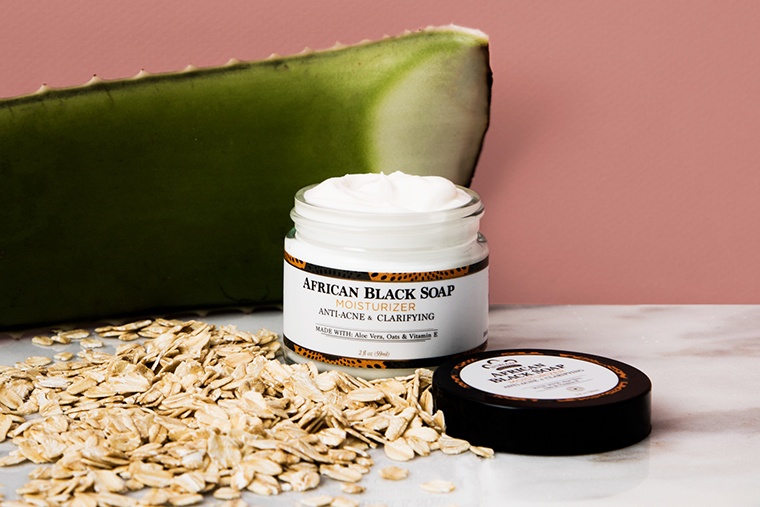advertisement
5 things you didn’t know about this cult beauty product
Even if you've stocked African black soap for years, there's still lots to learn about the multi-tasking miracle formula (including some brand-new products).
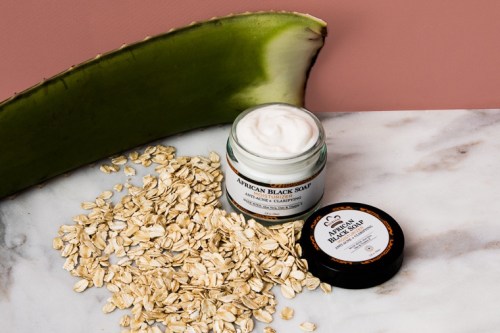

If you’re familiar with African black soap, chances are you’re familiar with Nubian Heritage. After all, it’s been over 25 years since the landmark brand introduced its calling-card product onto the market—and subsequently, onto the top shelves of natural beauty lovers everywhere.
The signature Nubian Heritage soap employs a base of moisturizing shea butter with exfoliating oat kernels and palm ash (which is responsible for the inky color—and is said to be an excellent detoxifier). Together, the combo is designed to exfoliate, soothe skin, and minimize acne, which makes it a go-to for anyone who wants to say buh-bye to breakouts.
But even if you’ve stocked it in your shower for years, there’s still lots to learn about the skin-whispering miracle formula (including some just-dropped surprises you need to know about).
Read on for five surprising facts about Nubian Heritage African Black Soap that will make you love it even more.
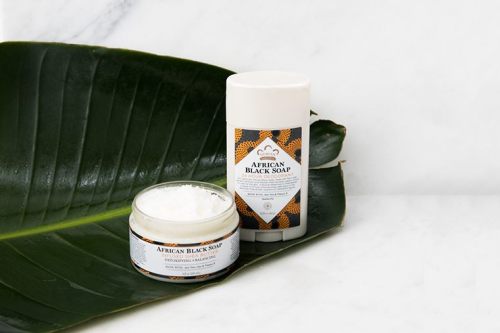
1. It’s got a long CV to back it up
Long before the Nubian Heritage founders began selling homemade skin-care goods in Harlem in 1992, black soap was a staple throughout Africa. Said to have originated with the Yorùbá tribe of Nigeria, it’s believed that young Nigerian women introduced the recipe to Ghanaians while trading peppers. Centuries later, the recipe for ose dúdú (black soap) remains virtually unchanged.
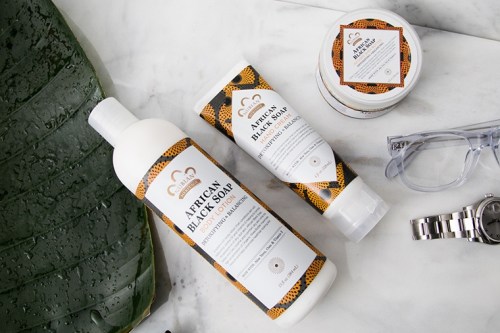
2. Its active ingredient is said to be better than charcoal
Other than uber-moisturizing Shea butter, palm ash is the star ingredient in all of Nubian Heritage’s African Black Soap line. And there’s a reason why: Ancient healing methods cite palm ash as a pro at pulling impurities from the skin. Today, it’s considered a precursor to the charcoal trend in beauty—but is said to be a higher-quality detox agent.
3. It’s still made with traditional methods (not in a lab)
Taking note from global healing traditions, Nubian Heritage produces its line the time-tested way: by burning palm leaves, cocoa pods, shea tree bark, and plantains down to an ash, mixing all of the ingredients in large pots, and setting the finished product out to cure.
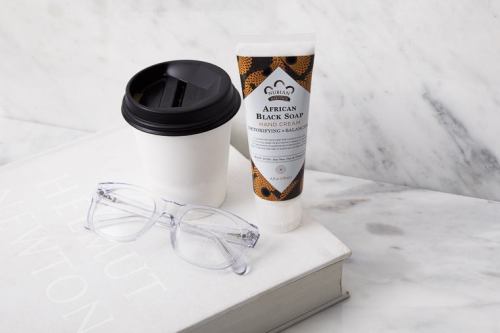
4. It has serious “future is female” bona fides
To support communities at the root of the supply chain, Nubian Heritage invests in women’s shea-butter cooperatives in Ghana through its Community Commerce business model. That means ensuring an ethical wage that’s two to three times higher than the average national minimum, as well as introducing energy-saving practices and changing processes to improve the health of members—like supplying municipal water directly to the co-op.
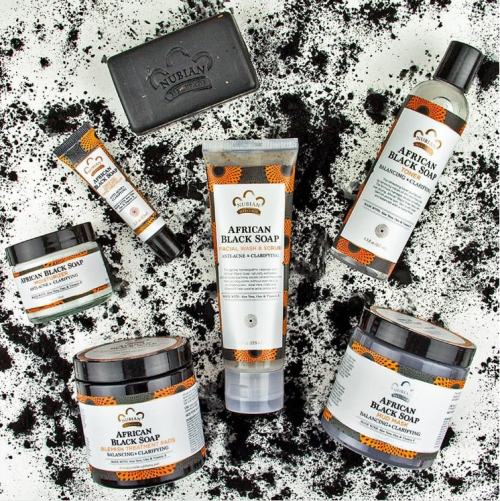
5. It’s not just for your body anymore
Your face can now get in on the action, too. Adding to the original collection (which includes lotions and body washes), Nubian Heritage just launched a collection of pore-satisfying facial care, including a soothing mud mask, gentle facial scrub, and silky whipped moisturizer.
Like the body-focused range, the multitasking products aren’t just designed to fight blemishes (check out the targeted spot treatment for that)—but to help diminish dark spots and soothe symptoms associated with eczema and psoriasis. No synthetic ingredients like benzoyl peroxide here—just generations’ worth of skin-softening experience.
In partnership with Nubian Heritage
Sign Up for Our Daily Newsletter
Get all the latest in wellness, trends, food, fitness, beauty, and more delivered right to your inbox.
Got it, you've been added to our email list.
